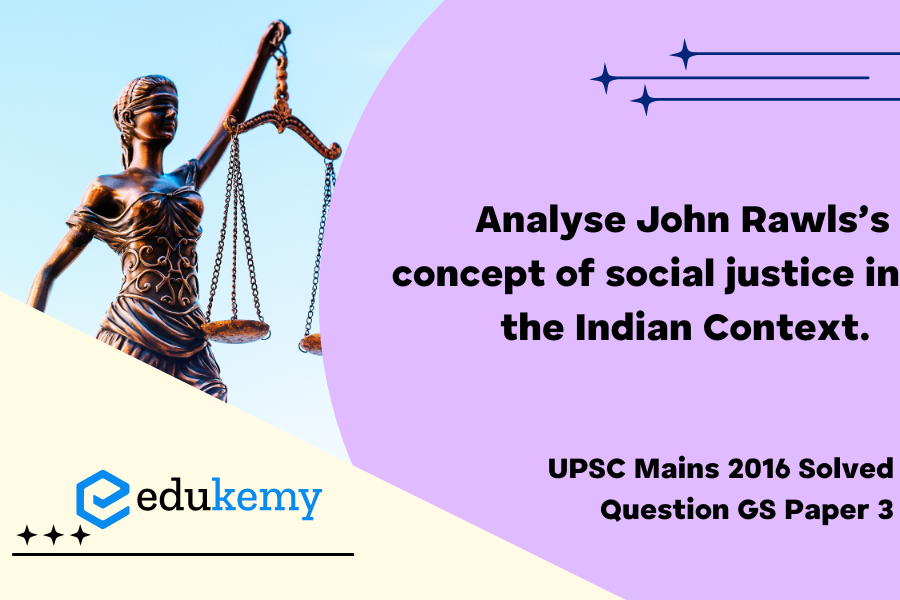John Rawls’s concept of social justice has been a cornerstone in political philosophy, providing a framework that seeks to reconcile individual liberties with societal equality. In the context of India, a nation marked by its diverse socio-economic landscape, Rawls’s ideas take on a profound significance. Rawls’s theory, encapsulated in his seminal work “A Theory of Justice,” emphasizes the importance of a just distribution of resources, opportunities, and privileges within society. In the Indian context, characterized by historical disparities and multifaceted identities, Rawls’s principles of justice as fairness find resonance in addressing the challenges of caste-based discrimination, economic inequality, and social exclusion. This analysis delves into the applicability of Rawls’s principles in the unique tapestry of India, exploring how his ideas can contribute to a more equitable and inclusive social order that aligns with the nation’s constitutional values and aspirations for justice.
Tag: Contributions of moral thinkers and philosophers from India and the world.
Contents
Decoding the Question:
- In the Introduction, try to define social justice.
- In Body, elaborate John Rawls’s concept of social justice in the Indian Context.
- In Conclusion, try to substantiate John Rawl’s social justice in the Indian context.
Answer:

John Rawl’s concept of social justice gives emphasis to fairness (i.e.) it must be fair to all, to the most talented as well as the most disadvantaged section.Social Justice is an expression which has found its way in the vocabulary of the Indian Constitution and has become a part of the Constitutional terminology. Rawl proposes a thought experiment where the individual is behind the ‘veil of ignorance’. He assumes humans as rational negotiators unaware of others talents . He concludes that the nature of society to be established would give priority to the following in lexical order:
i) Maximum Personal liberty
ii) Equality of opportunity
iii) Difference principle
John Rawls’s Concept of Social Justice in the Indian Context:
- In his book, he argues that the only way one can arrive at a fair and just rule is if someone imagines himself/herself to be in a situation in which decisions have to be taken about how society should be organized although not knowing in which position would person occupy in that society.
- Rawls describes the ‘veil of ignorance’ as a situation of complete ignorance about possible position and status in society, each person would decide in the way they generally do, that is, in terms of their interests. Since no one knows who he/she would be, and what is going to benefit or affect him/her, therefore all will envisage the future society from the point of view of the worst-off to ensure their benefit.
- The merit of the ‘veil of ignorance’ position is that it expects people to just be their usual rational selves. They are expected to think for themselves and choose what they regard to be in their interest.
In India too we have given maximum liberty and equality of opportunity for free enterprise. However, we have provided a slew of welfare programs as a safety net for the disadvantaged sections to protect them. Moreover, the Indian constitution has provided for reservations to equalize the differences and attempted to undo the historic injustices meted out to certain communities (Castes). The Constitution has favored establishing an egalitarian society instead of a meritocratic society.
In case you still have your doubts, contact us on 9811333901.
For UPSC Prelims Resources, Click here
For Daily Updates and Study Material:
Join our Telegram Channel – Edukemy for IAS
- 1. Learn through Videos – here
- 2. Be Exam Ready by Practicing Daily MCQs – here
- 3. Daily Newsletter – Get all your Current Affairs Covered – here
- 4. Mains Answer Writing Practice – here


